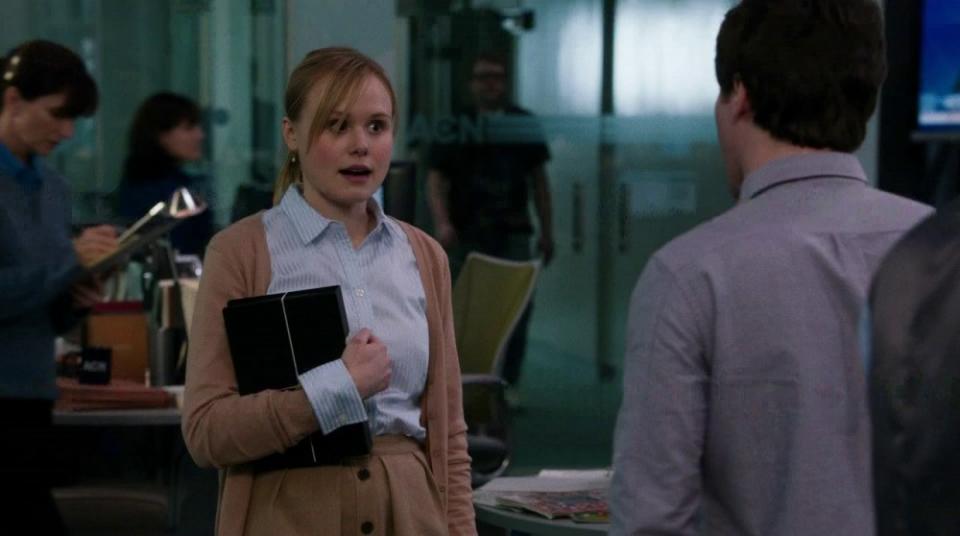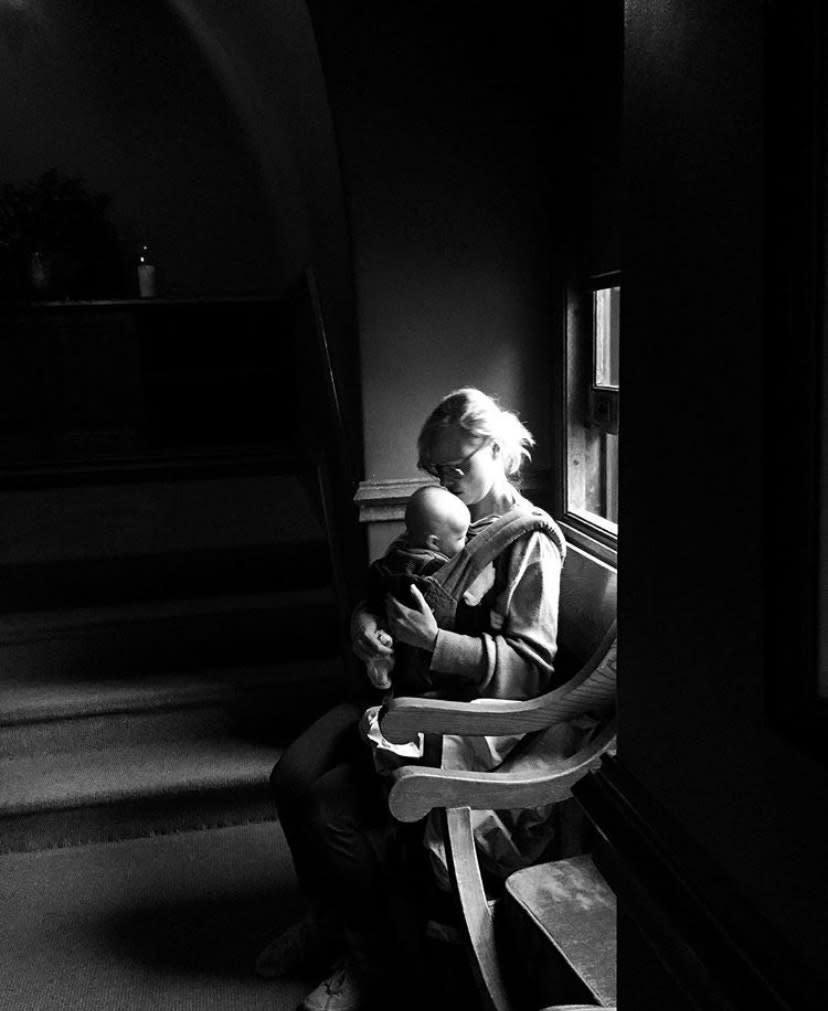‘I Thought Mom Brain Would Be the End of Me—It Became My Super Power’
It started with crosswords. Or rather, the lack of them. Or rather, the lack of me doing them. My brain was a little muddled, and names were not coming to me as easily as they once had, so suddenly crosswords weren’t as fun. Also books. And scary movies. And talking to people. I blamed the baby who’d suddenly taken up residence in my body.
I had complicated feelings about becoming a mom. As a feminist, I wondered how this new person would affect my work and how my work would affect this new person. How would I make sure I still had interesting things to talk about and not turn into a mom person who only wanted to chat about her kid? How would I keep my identity clear to myself, my husband, and this human?
I was between acting jobs when I got pregnant, and therefore was forced to a very luxuriously long (and very frustratingly unpaid) maternity leave. (Shockingly, no one was looking to hire a pregnant actress for non-pregnant parts.) It was the longest break I’d taken from working since I was 12. And surprisingly? I was into it. I was obsessed with the creature inside me, and what kind of curtains that person might enjoy as I decorated our nursery. I’ve never cared about curtains so much in my life.

Then I hit my third trimester and discovered that one of the great tragedies in the life of a pregnant lady is being unable to sleep. The little monster inside of me had taken my body’s stillness at night as an invitation to perform their own dances and yoga routines. It was wonderful...and annoying.
As a result of only sleeping from 3 a.m. to 7:30 a.m. most days (feeling thankful for every precious minute) and dealing with wave after wave of hormone changes, my brain was feeling...different. Less rested, more volatile. As the months passed, I gave up on crosswords past Thursday. I gave up on books that weren’t hilariously addictive crime fiction (Carl Hiassen in particular gave me joy in those very uncomfortable months). I gave up on movies that couldn’t guarantee a happy ending. And conversations about anything other than puppies and rainbows.
Fascinating and inspiring and beautiful though they are, infants are terrible conversationalists.
I hadn’t even given birth yet and already I had “mom brain”—I couldn’t have the same conversations or read the same books. I felt less and less recognizable to myself.
Eventually, the creature keeping me up all night from inside my body began keeping me up all night while outside of my body. It was a thrilling change becoming a mom, but did nothing for my sleep habits or my emotional consistency. I was a human puddle of hormones, thrilled when I got to have a shower, let alone a conversation with my husband that didn’t revolve around feeding schedules. I started to feel lonely, as so many new moms do—understandable given the person you spend the most time with sees you as a pair of nipples and a warm body. That person doesn’t share your love of Russian literature, or your interest in great plays. That person wants milk, sleep, cuddles, and to figure out how to make their eyes work. Fascinating and inspiring and beautiful though they are, infants are terrible conversationalists.
Deep into the disorienting haze of mom brain, I came upon a study outlining how pregnancy literally reduces the gray matter of your brain. The gist is that through “synaptic pruning,” a pregnant woman’s brain goes through a change similar to adolescence in its restructuring—some aspects of your cognition become weaker while others become sharper in an effort to better tailor your brain to the challenges of motherhood.
The idea that my brain was redefining what it could and would do was terrifying. I’d spent nine months surrendering so many things I thought were essential to my being—my body, my job, my irresponsibility. No one mentioned I’d also be giving up my brain as I knew it. But reading the study made me feel like someone had reached out to say, “It’s okay. Your brain is normal. You’ll be alright.” My lizard brain desire to protect my kid and lack of patience for social interactions that felt inauthentic suddenly made sense. Evolution is cool like that.
It’s exciting and humbling to realize just how little you know when grilled by a three-year-old.
Motherhood did change my identity, right down to my gray matter, but not in the scary ways I’d feared. I used to have hours in a day to learn lines, to dream up character ideas, to wallow in self-indulgent actor stuff. Now I only have nap time to do all that but I find my brain can shift into different modes so much more swiftly. Mom brain isn’t such a bad thing.

More than anything, I’ve learned it’s impossible to get it right as parents, and yet, we do it anyway. Accepting the less-than-perfect scenario is my new cognitive superpower, and momhood lets me practice it every single day.
My kid is three now and my mom brain has continued evolving—mostly thanks to the fact that I now cohabitate with a little Question Machine. I try to limit myself to one “just because” answer per day, which means I have to do a lot of research. It’s exciting and humbling to realize just how little you know when grilled by a three-year-old.
My mom brain has become a time management expert, a more humble and patient servant, and a curious challenger—and I’ve never been more grateful for the work it does. Even if it means I don’t do crosswords all that often anymore. After all, I’ve got to use my mom brain to explain optical physics (AKA rainbows) to my three-year-old.
Alison Pill is mom to Wilder and also an actor. She can be seen in Star Trek: Picard and in the upcoming DEVS and Them.
Originally Appeared on Glamour

